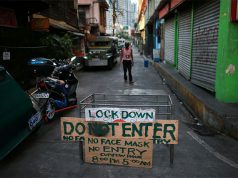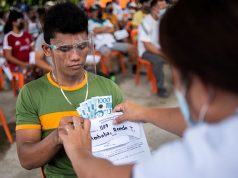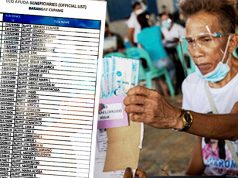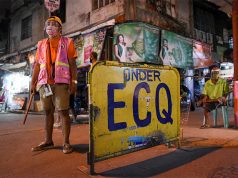A social media account offering writing and multimedia services for students with a fee was questioned for promoting perceived academic dishonesty and incompetence among Filipino students.
The Twitter account, “The Acads Helper,” claims to help students who are “stressed with workloads, struggling with deadlines” and are “tired of substandard work.”
Its services range from essay writing (including scripts, book amd movie reviews, etc.) to editing videos and doing posters for fees of P500 and below.
Thesis papers, meanwhile, costs P1,500 each.
The online account also said that it accommodates job orders which are not mentioned on the list, including “rushed jobs.”

The online academic helper also managed to justify its services by claiming that it is not a scam on its “frequently asked questions” post.
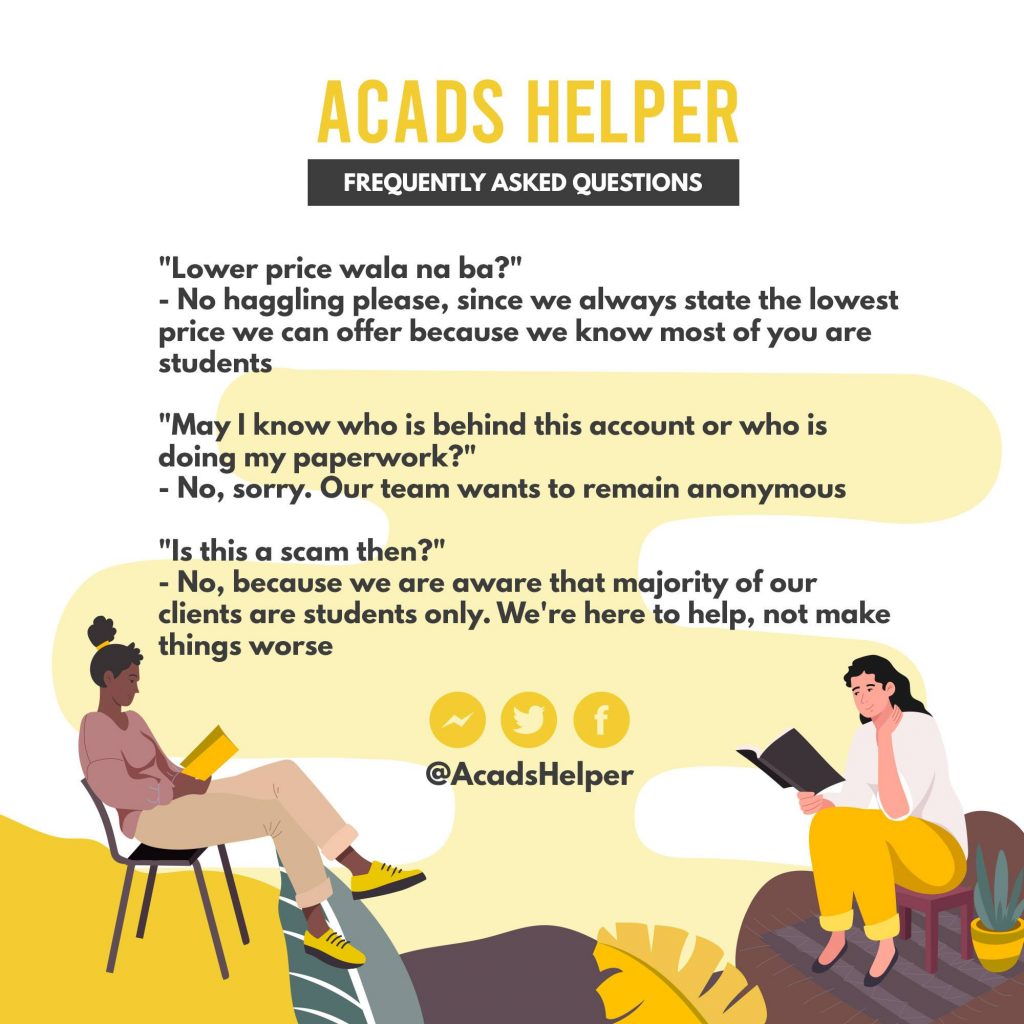
“We are aware that majority of our clients are students only. We’re here to help, not make things worse,” part of its post read.
Acads Helper also said that its team “wants to remain anonymous” so that the students cannot ask about the identities of the ones writing their papers or doing their projects.
In one of its tweets, Acads Helper implied that its nature of business could be compared to expertwriting.org, a website based in the United States that claims to do various types of schoolwork for “very reasonable fees.”
As of writing, Acads Helper announced that it had reached limit due to the bulk inquiries on its direct message.
Form of ‘intellectual dishonesty’
Acads Helper recently made waves on local Twitter amid the enhanced community quarantine wherein some students are still expected to fulfill their schoolworks even after the government suspended onsite classes due to the threat of COVID-19.
Schools were advised to shift to distant learning methods with the aid of the internet so that they could continue their studies.
Other academic institutions like the Ateneo de Manila University opted to pass all of its students and refund portions of their tuition fees in light of the pandemic.
Meanwhile, the critics of Acads Helper raised concerns about it supposedly promoting “academic dishonesty” and “incompetence” among students who are still obliged to fulfill their requirements.
A Twitter user claiming to be a “future educator” tagged the online accounts of the Department of Education and the Commission on Higher Education in an attempt to call the agencies’ attention and make them aware of such business.
He likened it to the services in a compound along Recto Avenue in Manila, a known “production hub of fake documents” such as identification cards, diploma, registration papers, among others.
“Acads Helper? More like ONLINE RECTO SERVICES. This is cheating and it promotes incompetence and academic dishonesty. Nakapagpasa ka nga before the deadline, ga-graduate ka namang walang alam. So paano ka??” he wrote.
Another Twitter user requested for “Acads Helper” to take down its post promoting its services.
“This can easily be abused by the students. You’re not helping them nor the society. You’re breeding mediocrity and incompetence when teachers are doing their best to breed excellence and passion,” the online user wrote.
A lawyer and academic similarly said that the account could be enabling “intellectual dishonesty” with the type of services it is offering.
“Hindi ba intellectual dishonesty ‘yang @AcadsHelper if they’re doing students’ requirements for them? And I saw a UP student even share it. Where is the integrity?” Chad Osorio asked.
Another Filipino who claims to be a teacher described Acads Helper as “a big slap to the teachers” who strive for their students to learn and be able to genuinely hone their skills as individuals.
“Isang malaking sampal ito para saming mga guro. Ang mga requirements ay ina-assign namin para mahasa at ma-assess ang skills ng mga bata. You are depriving students learning opportunities. Tinuturuan niyo silang mandaya at maging tamad. Tapos pagkikitaan niyo pa sila,” the online user wrote.

While there is no law preventing students from letting other people do their schoolwork for them, the practice is highly looked down upon by academics around the world.
British teachers have urged their government to completely ban the practice which they call “contract cheating” where students pay someone else to do their schoolwork.
The Academic Integrity Council of Ontario also urged public officials in Canada to make such services illegal.
John Paul Foxe, a director of Ryerson University’s academic integrity office, said that he sees such businesses as “predatory companies.”
“They will go so far as to say, ‘If you engage with us, you’re not cheating, you’re not doing anything wrong, you won’t get caught,'” he was quoted by CBC News as saying.
In Australia, a law has been proposed that aims to criminalize such services. People who participate in contract cheating could face imprisonment and be penalized for $210,000
“If you write another person’s university essay, that’s cheating and you’re ripping off other hardworking students and also undermining our world-class education system,” Dan Tehan, Australia’s minister of education, said to News.com.au.
Christine Lee, a visiting writing professor at a plagiarism detection service, said that contract cheating is “a complete dismissal of the learning process.”
“Contract cheating is real and it’s threatening academic integrity. Contract cheating is happening and it is disrupting student learning on a daily basis,” she pointed out in an article published October 2019.






